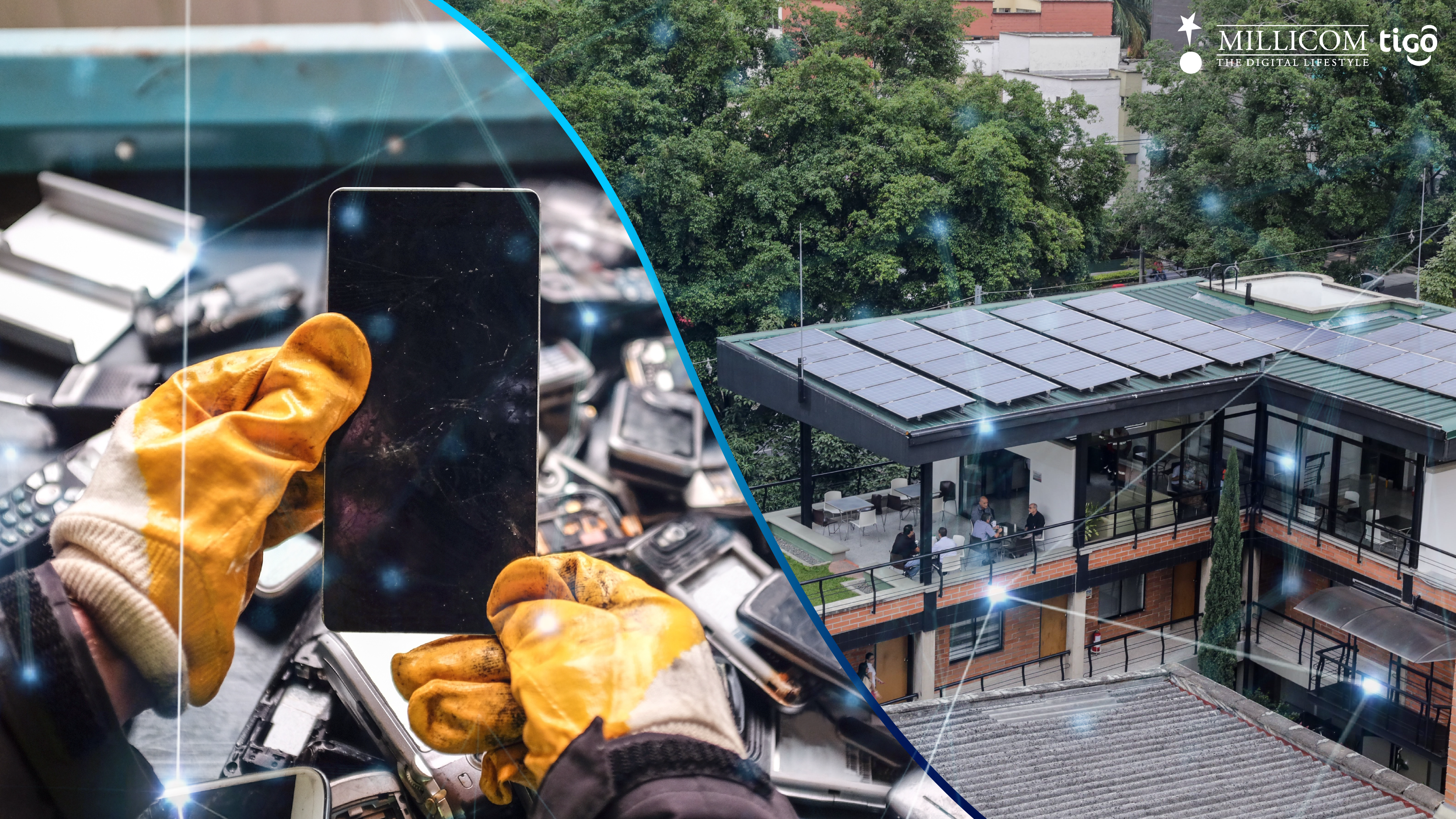Millicom (Tigo) Emissions Reduction Targets Validated by the Science Based Targets initiative
Millicom (Tigo) announced the validation of its carbon emissions reduction targets by the Science Based Targets initiative (SBTi). Millicom is among only three telecommunications companies in Latin America to achieve this milestone. The company aims to reduce absolute scope 1 and 2 greenhouse gas emissions by 50% by 2030 and scope 3 emissions by 20% by 2035, using FY2020 as a baseline. These commitments align with the Paris Agreement goals to limit global warming. Millicom's efforts include increasing renewable energy usage, with over 16,000 MWh purchased in 2021.
- Millicom's emissions reduction targets validated by SBTi, enhancing its sustainability credentials.
- Plans to cut absolute scope 1 and 2 GHG emissions by 50% by 2030, showcasing commitment to environmental responsibility.
- Acquired over 16,000 MWh from renewable sources in 2021, indicating a shift towards greener energy strategies.
- Requires significant effort and investment to achieve ambitious emissions reduction targets.
Millicom (Tigo) Emissions Reduction Targets Validated by the Science Based Targets initiative

LUXEMBOURG, July 21, 2022 – Millicom International Cellular S.A., a leading provider of fixed, mobile and digital services in Latin America through its Tigo brand, today announced that the Science Based Targets initiative (SBTi) has validated its carbon emissions reduction targets.
Millicom is one of only three telecommunications companies and 33 companies1 overall in Latin America2 to have their science-based targets validated. The SBTi considers targets as science-based if they are in line with what the latest climate science deems necessary to meet the goals of the Paris Agreement – limiting global warming to well-below 2°C above pre-industrial levels and pursuing efforts to limit warming to 1.5°C. Millicom has long focused on environmentally sustainable business practices, but to achieve its SBTi targets, it must cut greenhouse gas emissions by half by 2030 – and drop to net zero by 2050.
Millicom has committed to reducing absolute scope 1 and 2 GHG emissions by
“SBTi’s validation is a major milestone for Millicom and our efforts over many years to reduce our carbon footprint,” said Mauricio Ramos, Millicom’s Chief Executive Officer. “Being good environmental stewards is not a mere add-on for Millicom, but core to our purpose of building the digital highways that connect people, improve lives, and develop communities.”
To meet these ambitious emissions reduction levels, Millicom is combining energy efficiency with initiatives and market instruments to increase the proportion of energy it uses from renewable sources. In 2021, Millicom acquired more than 16,000 MWh from renewable sources, through power purchase agreements in Panama and renewable energy certificates in Colombia. Furthermore, it is adopting innovative energy sourcing models, such as energy as a service, to ensure service continuity as well as a smaller carbon footprint through the roll-out of over 1,200 new rural sites in Colombia over the next 4 years, of which over
“We are encouraged by our success towards reducing scope 1 and 2 emissions and are building partnerships across the industry to tackle the challenge of reducing our scope 3 footprint,” said Karim Lesina, Millicom Executive Vice President and Chief External Affairs Officer. “To be successful, it’s imperative that we reach out and collaborate. We strongly believe that a green economy is a digital economy, and only digital transformation of all industries can truly provide the basis for a long-term sustainable economic success.”
The SBTi is a collaboration between CDP, the United Nations Global Compact, World Resources Institute, and the World Wide Fund for Nature. It defines and promotes best practice in science-based target setting and independently assesses and approves companies’ targets. In partnership with the UN Global Compact and the We Mean Business coalition, the SBTi leads the Business Ambition for 1.5°C campaign - an urgent call to action from a global coalition of UN agencies, business, and industry leaders, mobilizing companies to set ambitious 1.5°C and net-zero science-based targets. Millicom is among the 1,500-plus companies and institutions that have had their science-based targets validated.
-END-
For further information, please contact
| Press: Yocasta Valdez, Sr. Manager Digital Media & Communications press@millicom.com | Investors: Michel Morin, VP Investor Relations Sarah Inmon, Director Investor Relations investors@millicom.com |
About Millicom
Millicom (NASDAQ U.S.: TIGO, Nasdaq Stockholm: TIGO_SDB) is a leading provider of fixed and mobile telecommunications services in Latin America. Through our TIGO® and Tigo Business® brands, we provide a wide range of digital services and products, including TIGO Money for mobile financial services, TIGO Sports for local entertainment, TIGO ONEtv for pay TV, high-speed data, voice, and business-to-business solutions such as cloud and security. As of March 31, 2022, Millicom employed approximately 20,000 people and provided mobile and fiber-cable services through its digital highways to around 50 million customers, with a fiber-cable footprint of close to 13 million homes passed. Founded in 1990, Millicom International Cellular S.A. is headquartered in Luxembourg. For more information, visit: millicom.com. Connect with Millicom on Twitter, Instagram, Facebook and LinkedIn.
1 Full list can be found on SBTi’s website.
2 As of the date of this announcement.
Attachments
- Millicom (Tigo) Emissions Reduction Targets Validated by the Science Based Targets initiative
- PR_Millicom (Tigo) Emissions Reduction Targets Validated by the Science Based Targets initiative_072122
- PR_Las metas de reducción de emisiones de Millicom (Tigo) fueron avaladas por la Iniciativa de Objetivos Basados en la Ciencia_072122. docx

FAQ
What are Millicom's emissions reduction targets validated by SBTi?
How many telecommunications companies in Latin America have validated emissions targets?
What significant step has Millicom taken towards sustainability?







